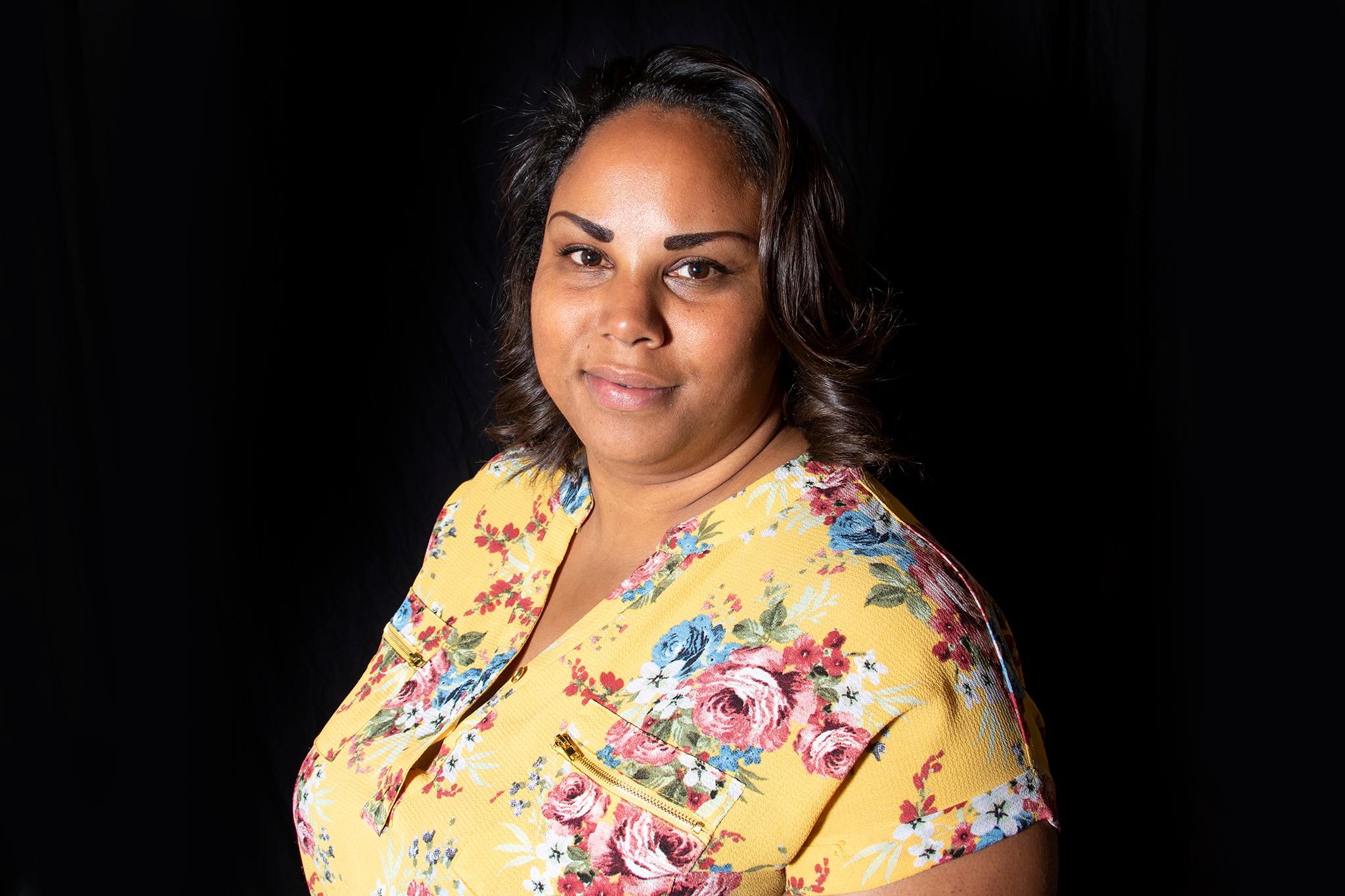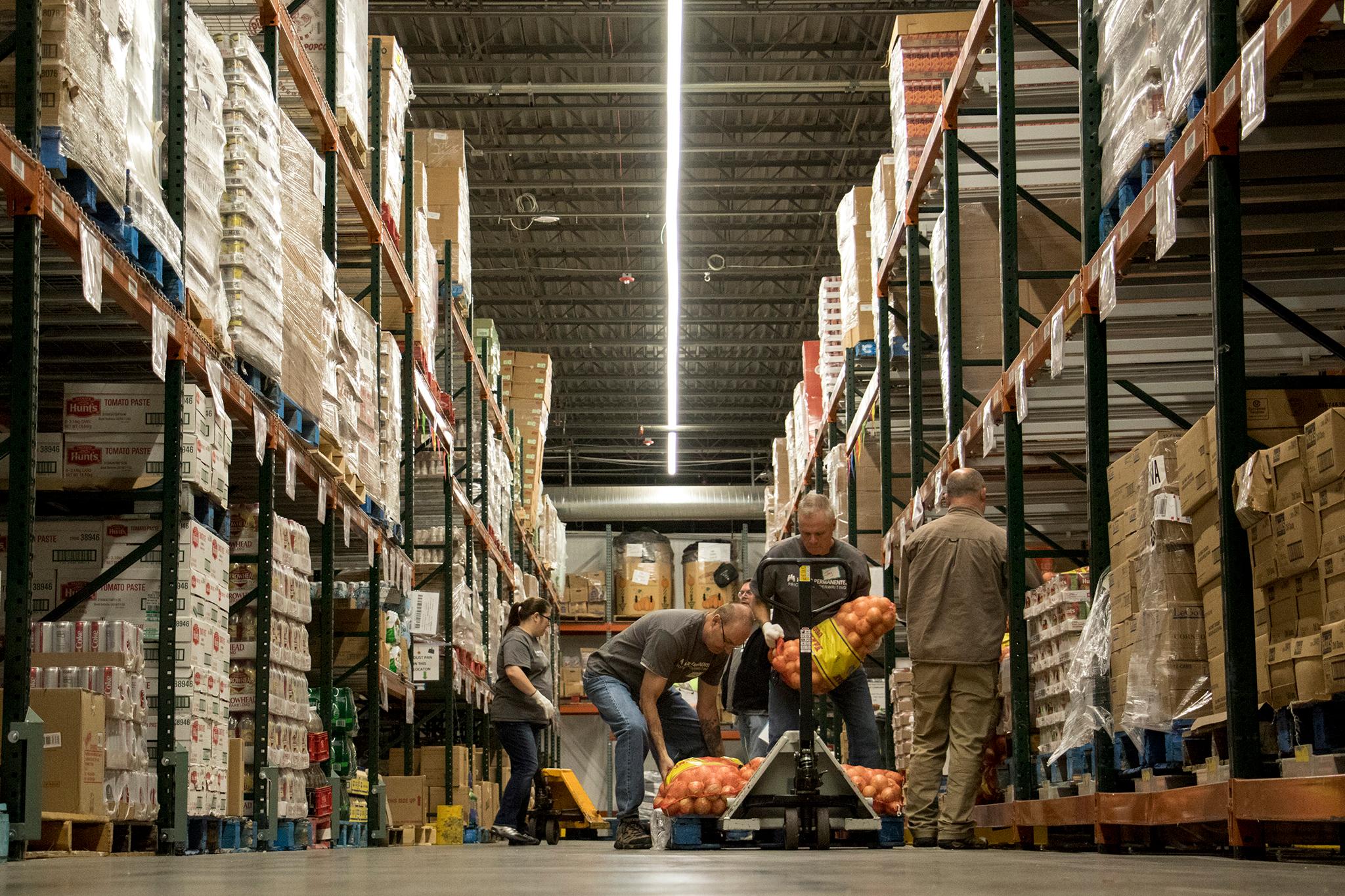Updates with Jewish Family Services starting it's new protocol March 17.
Food pantries are taking steps to both contain the spread of the new coronavirus and ensure they can respond if more people come in who need help feeding their families.
Gabriel Moe-Lobeda, who coordinates the Jewish Family Service food pantry at 3201 South Tamarac Dr. in Hampden, said he and his colleagues were working out plans to distribute pre-packaged boxes of supplies, replacing the nonprofit's "free grocery store" model in which people make their own choices from the shelves of a pantry that is about the size of a small convenience store. That will reduce person-to-person contact as well as exposure from items being touched.
"We are open, and we are going to remain open," Moe-Lobeda said.
The changes were to be instituted starting Tuesday through March 20.
The anti-hunger organization Metro Caring, which distributes millions of pounds of food every year from its fresh-food pantry at 1100 East 18th Ave. in City Park West, is requiring staff members who are sick to stay home, asking community members or volunteers not to visit if they have traveled to places such as Italy and Iran where the virus has sickened thousands, and taking other safety steps.
"We are striving to keep our community safe while ensuring continued access to groceries," said Metro Caring's chief executive officer, Teva Sienicki.
The East Colfax Neighborhood Association has a small weekly pantry located at a local business, Counterpath at 7935 E 14th Ave. Tim Roberts, who runs Counterpath and heads the neighborhood association, said soap and tissues would be among the items distributed Friday, the pantry's regular day.
"Our plan is, even with the colder weather, to hold the whole thing outside," Roberts said. "If we have a large attendance we'll just form an orderly line, observing 'social distancing.'"
People with the means to do so are stocking up at big-box stores. But "our most vulnerable populations don't have that access," said Christine Alford, executive director of Denver Food Rescue.
Alford's organization collects from stores and warehouses produce that is edible but might otherwise go to waste. The food is then distributed at pantries set up at schools, recreation and community centers, Boys & Girls Clubs, senior housing complexes. Alford said that as part of its response to the spreading coronavirus, Denver Food Rescue workers will be wearing gloves when they collect food, not just when they are sorting it, and food will be packaged and ready to be picked up so that visitors can spend less time at the pantries. She was also stocking up on hand sanitizer and bleach wipes.
Alford said she has heard from food distributors that it's mostly nonperishable items that have been disappearing from grocery store shelves, so her organization might have more fresh fruit and vegetables to collect.

We Don't Waste, another Denver nonprofit that collects food that would otherwise be discarded, relies in part on large catering companies.
"With the cancellation of many events -- NBA, NHL, concerts, etc. -- you can see that we are beginning to see a slow down in the amount of food available for recovery," said Arlan Preblud, founder and executive director of We Don't Waste. "It is going to be a domino effect -- less food going to large venues, suppliers not filling up warehouses, as well as the general public withdrawing from large events."
Preblud said he expected the need for food to grow. Denver Public Schools will close starting Monday for three weeks due to the coronavirus, and during the extended spring break DPS will offer free meals to students in need, including breakfast from 8 a.m. to 9 a.m. and lunch from noon to 1 p.m. at at Abraham Lincoln High School, Place Bridge, Shoemaker Elementary, Lincoln High, North High, Montbello, Manual and Baker. However the district will not offer busing to and from the meals in order to avoid grouping children. Some families may find pantries more convenient. Two-thirds of the more than 93,000 students enrolled in Denver schools are eligible for free or reduced lunches.
The Action Center, which provides food and other support to people in need in Jefferson County, was hoping for stepped up donations from individuals to supplement supplies it collects from grocery stores.
Action Center Executive Director Pam Brier added that her volunteers are often older, and some may not be able to come in as usual. Older people are considered especially vulnerable to the worst affects of the flu-like COVID-19, the disease caused by the new coronavirus.
"We're going to be needing volunteers," Brier said, saying smaller pantries might have to close because of a lack of volunteers, which could mean more people will come to her center.
The Action Center was also planning to modify its free grocery store model. Starting this Monday, instead of coming inside to choose groceries, people will be able to drive or walk up to collect pre-packaged boxes of canned or boxed nonperishable foods and bags of fresh fruits and vegetables from tents set up outside the nonprofit's complex at 8745 West 14th Ave. in Lakewood.

Kristina Thomas, spokeswoman for the Food Bank of the Rockies, said volunteers have been cancelling shifts at her organization. The bank supplies many Denver area pantries out of a warehouse at 10700 E. 45th Ave. in Montbello.
The food bank needed "healthy individuals and groups to continue helping us provide food to those facing hunger in our community," Thomas said. "We are taking reasonable and appropriate precautionary measures ... and we are asking our staff, volunteers, agencies, and clients to do the same. We have enhanced our facilities cleaning procedures to protect staff and volunteers, and we have guidelines in place to reduce the risk of infection."














